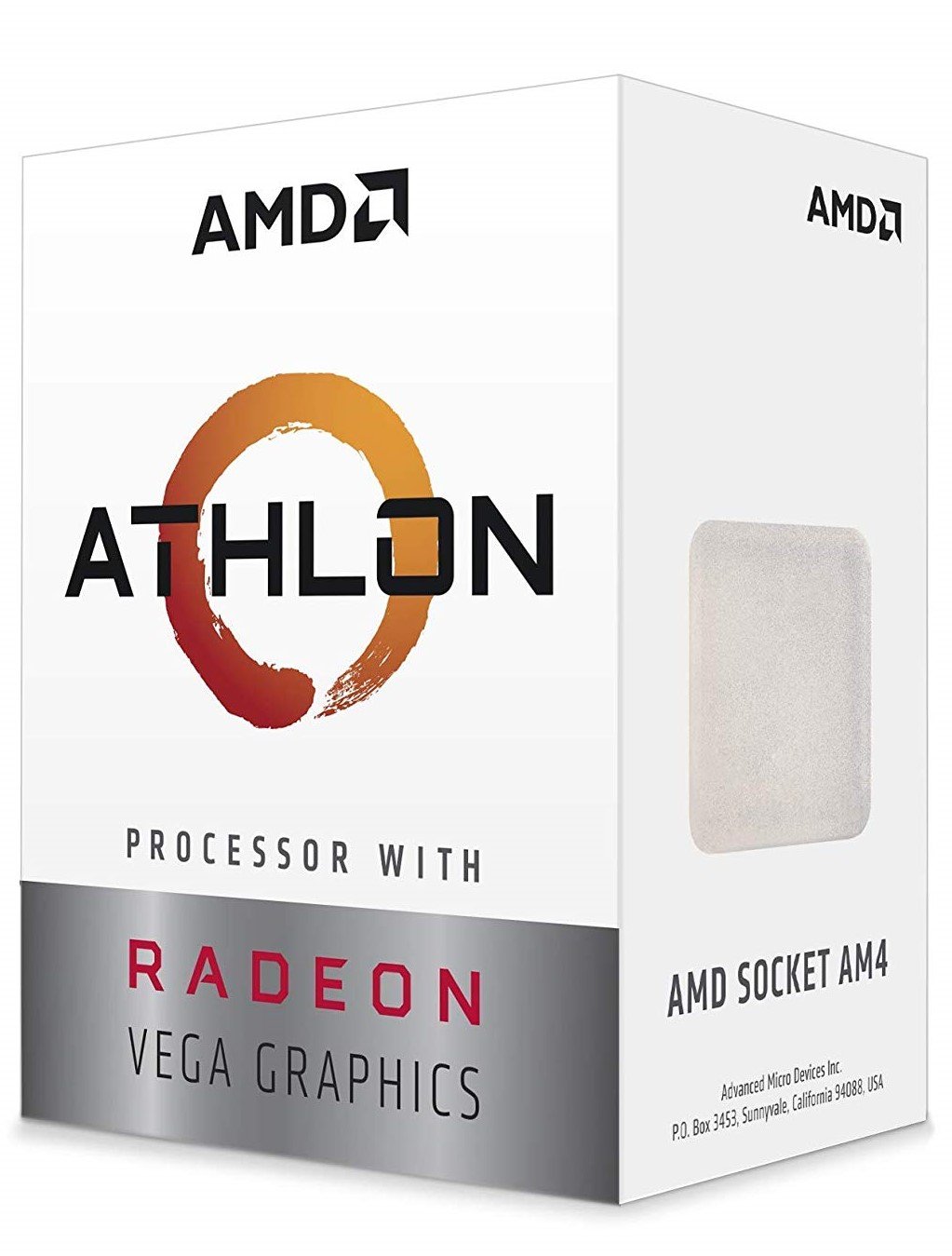Is the AMD Athlon 200GE worth buying?
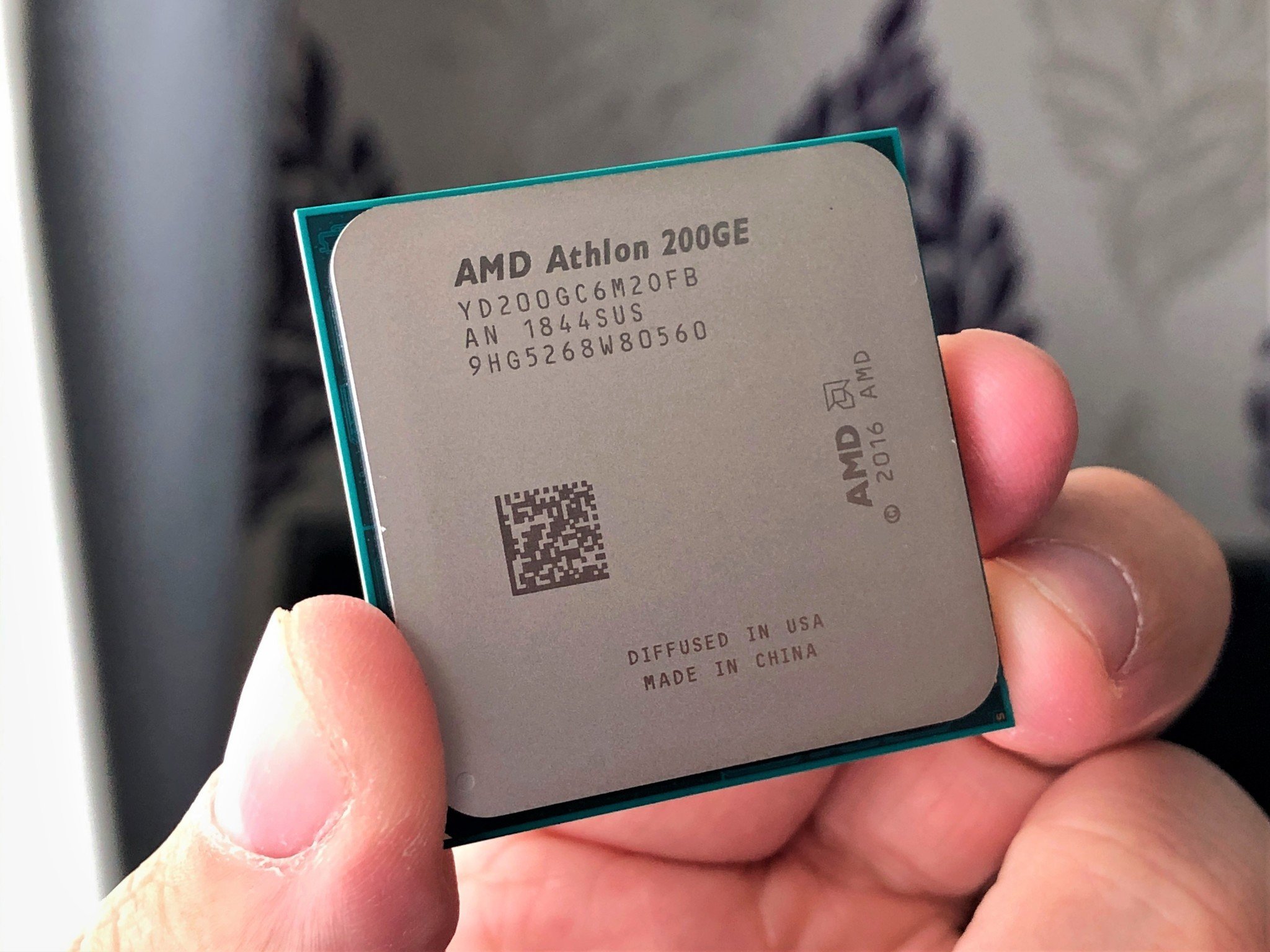
All the latest news, reviews, and guides for Windows and Xbox diehards.
You are now subscribed
Your newsletter sign-up was successful
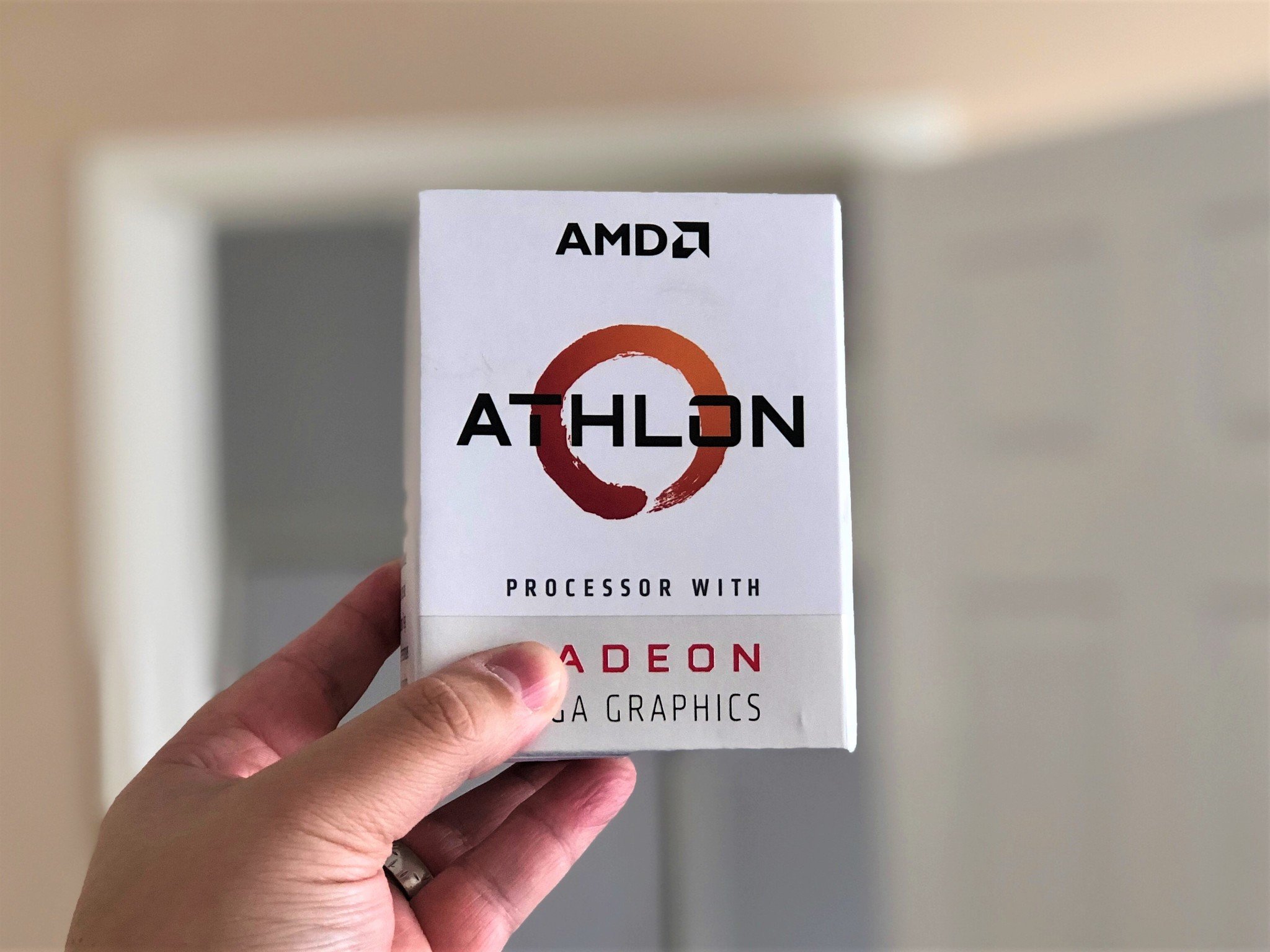
Is the AMD Athlon 200GE worth buying?
What you get for under $60
Regional prices will always vary, but right now the Athlon 200GE is under $60 in the U.S., and just £40 in the U.K. That alone makes it exciting to look at, especially for folks who want to build a PC with new parts but are on a tight budget.
But what do you get in the Athlon 200GE?
- Two cores, four threads
- Base clock of 3.2Ghz
- 35W TDP
- Radeon Vega 3 graphics.
The last of those is particularly important. Intel's comparable budget chips can't offer integrated graphics as strong as AMD's, which becomes even more of a win if you're building a system without a dedicated graphics card.
The Athlon 200GE is also built on the Zen architecture, more widely known for its use in the Ryzen processors. That also means it's based on the same AM4 platform as Ryzen, giving you a clear upgrade path in the future.
The Athlon 200GE is the entry-level, and AMD sells 220GE and 240GE models, which are essentially the same but with higher base clock speeds. However, you shouldn't buy either of those (more on that below).
Solid performance for a cheap chip
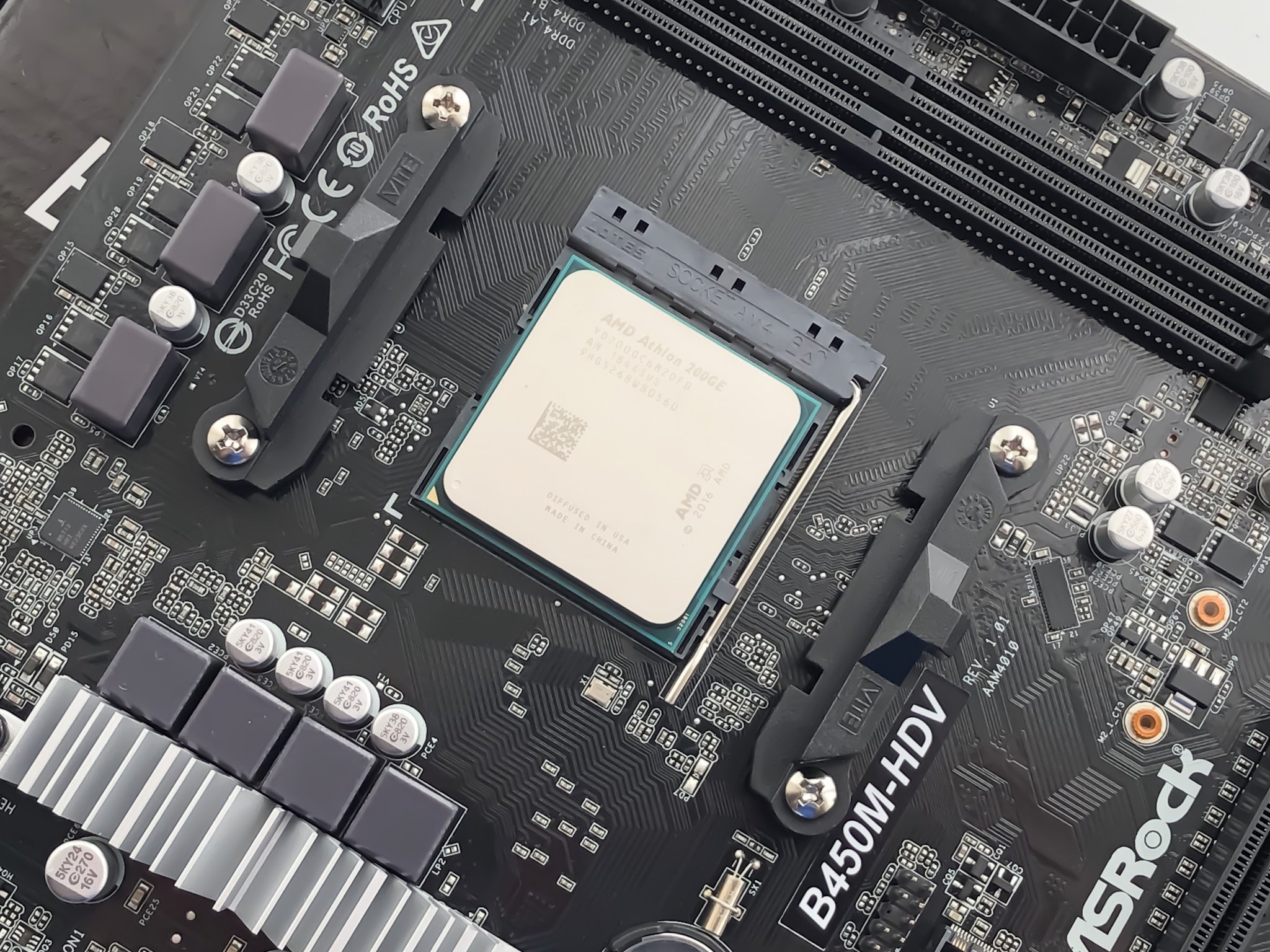
To test out the Athlon 200GE, we paired it with an ASRock B450M-HDV motherboard, 8GB of single-channel Corsair Vengeance 2666MHz RAM, and a Samsung 960 Evo NVMe SSD boot drive. The Athlon 200GE will perform a little better with dual-channel RAM, but we used what was on hand. It's also not worth going higher than 2666MHz on your RAM speeds with this chip.
We also used the stock cooler that comes in the box, as most budget builders probably would, and honestly, that's not a bad choice. Despite looking rather puny, it offers good cooling, with the Athlon 200GE around 35 degrees Celsius most of the time, and even during benchmarks, it didn't ever go above 50 degrees Celsius. It's also surprisingly quiet, so if that's important or perhaps you're looking at an HTPC build, the stock cooler is worth keeping.
All the latest news, reviews, and guides for Windows and Xbox diehards.
We also used the stock cooler that comes in the box, and honestly, that's not a bad choice.
There are two aspects of the Athlon 200GE performance to consider: the CPU cores and the GPU cores. You're not going to get eye-watering results in either case, but for such a low outlay, the results are pleasing.
In Cinebench R20 the shortfalls become clear, scoring just 635, but that's to be expected when you're looking at just two physical cores, even with hyper-threading. The same is true of Geekbench 4 where we see 3,221 for single-core and 7,023 for multi-core performance.
However, synthetic benchmarks only tell a part of the story. As an everyday computing platform, the Athlon 200GE holds up really well. Paired with decent RAM and storage, it feels no slower to use than a modern laptop for regular tasks such as web browsing, watching videos or using Microsoft Office.
But then you try and use it to game. Surely that's not possible?
Overclocking and gaming
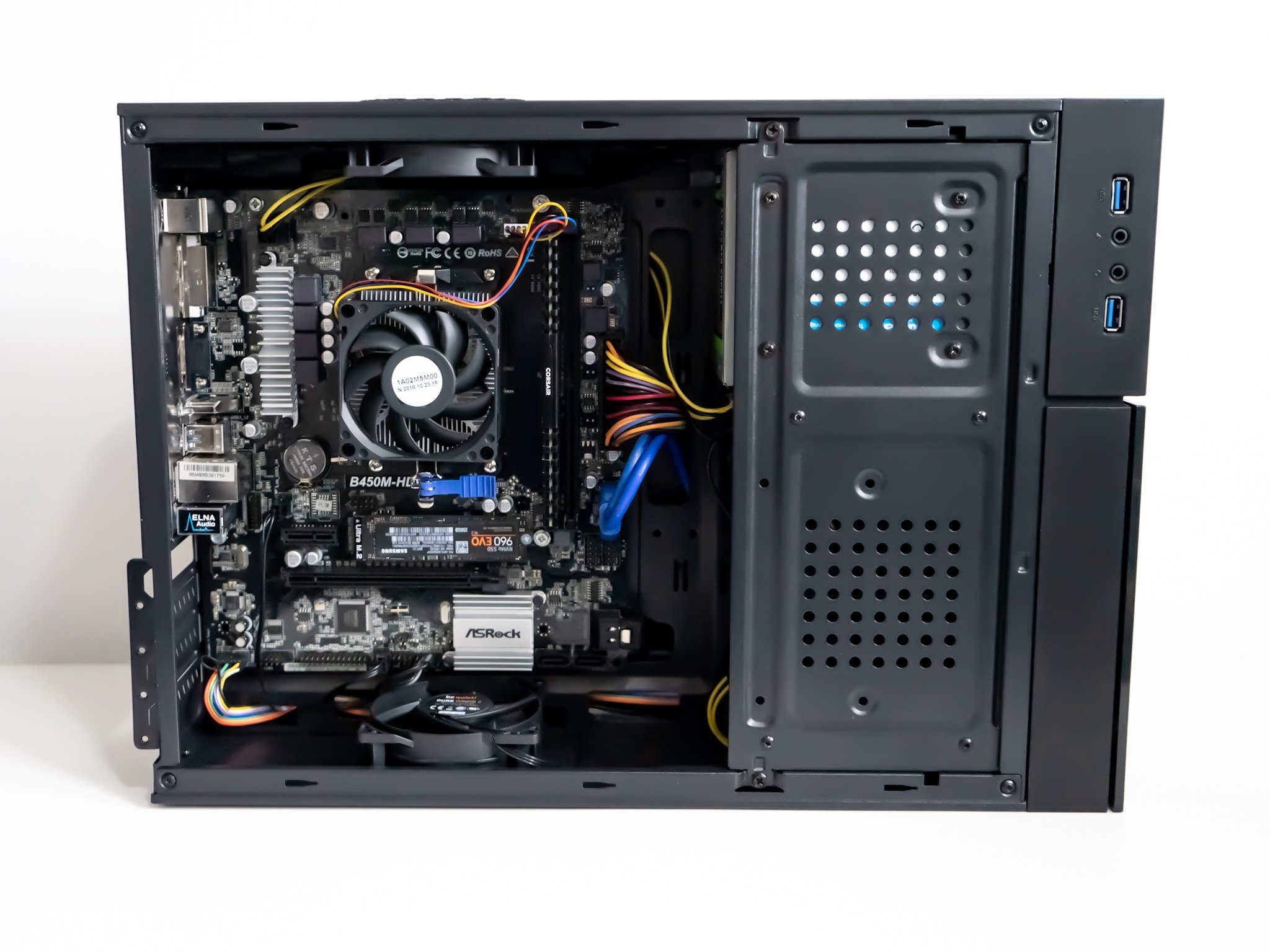
Surely you can't actually game on a sub-$60 processor without adding a dedicated graphics card? Right?
Oh, but you can. There are plenty of compromises to make, but yes, you can absolutely play games on the Athlon 200GE just as it is. That's where the Radeon Vega 3 graphics comes into play.
There's also the small matter of overclocking. Officially, AMD never supported this and the 200GE was locked, but then, starting in late 2018, motherboard manufacturers like MSI, Gigabyte, and ASRock started releasing new motherboard BIOS updates that ignored this and allowed you to overclock the chip up to as much as 3.9GHz.
Buy the 200GE and overclock it rather than the more expensive versions
Not all chips are the same, and without changing any voltage settings, ours sat stable at 3.8Ghz with only a mild temperature increase of a few degrees. That's a 600MHz increase over the base clock, which is huge. It's also why you shouldn't buy the 220GE or 240GE — simply spend less money and overclock a 200GE.
Overclocking the CPU cores only has a mild impact on gaming, but nevertheless, it adds a few frames per second, which at this level can make a big difference. Additionally, the Cinebench R20 score jumped to 909, which was a solid increase.

So, with our 3.8GHz Athlon 200GE and no dedicated graphics card, here's the sort of numbers we saw in a few different games, all at 720p on low graphics settings.
- Dirt Rally (in-game benchmark) - Avg 45 FPS, min 32 FPS.
- Tomb Raider (in-game benchmark, shadows off) - Avg 68 FPS, min 52 FPS.
- Bioshock Infinite (in-game benchmark) - Avg 57 FPS, min 26 FPS.
- F1 2013 (in-game benchmark) - Avg 69 FPS, min 52 FPS.
- 3DMark Night Raid benchmark - 4,449.
Minecraft is pretty solid at 60 FPS at 1080p, and at 720p Call of Duty Black Ops 2 multiplayer was similarly stable at 60 FPS.
You are limited to older games and light titles, such as Cuphead, League of Legends, CS:GO, or Dota 2, but for a very small outlay, you can have a PC that will play games surprisingly well. In titles such as Tomb Raider and Bioshock Infinite you could even increase some of the graphics and still have a very playable experience. After all of this, it's still better than you'll find on Intel's budget chips with integrated graphics.
Should you buy the Athlon 200GE?
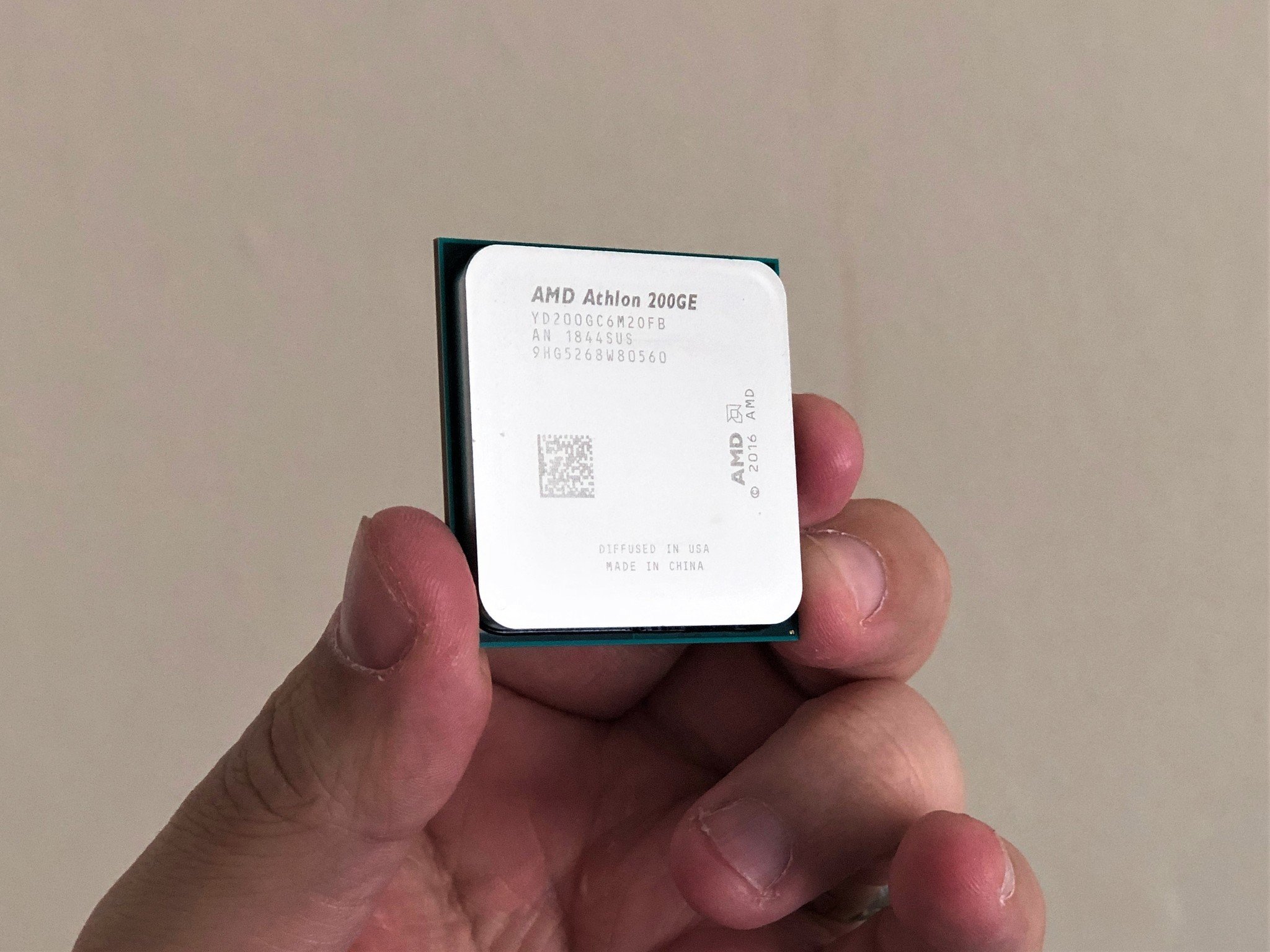
The Athlon 200GE is definitely worth buying, especially at its current price. It's easy to see why it's gained something of a following and popularity among the tech community and folks who enjoy budget gaming hardware. If you're looking to build a really low-cost PC from new parts, the Athlon 200GE is worthy of a place at its heart.
If you're looking to build a really low-cost PC from new parts, the Athlon 200GE is worthy of a place at its heart.
The elephant in the room is AMD's base Ryzen APU, the Ryzen 3 2200G. In some markets, it's twice the price of the Athlon 200GE, though the difference is a little less in the U.S. It's still a stronger chip, with four physical cores, albeit with no hyperthreading, and Vega 8 graphics, which are a decent jump over the Vega 3 in the Athlon 200GE.
If you have the budget for it, it's a better buy, especially if you're not going to add a dedicated graphics card. But if you are going with one, saving the money and buying the Athlon 200GE and putting the difference towards something like an NVIDIA GT 1030 will work out better in the long run.
Ultimately, the answer is yes, the Athlon 200GE is definitely worth it. Whether you're looking for just a cheap computer for basic tasks, a budget HTPC or even a budget gaming rig, the Athlon 200GE can deliver.
If you're not going to add a dedicated graphics card and your budget allows for it, however, the Ryzen 3 2200G will still offer better performance.

Richard Devine is the Managing Editor at Windows Central with over a decade of experience. A former Project Manager and long-term tech addict, he joined Mobile Nations in 2011 and has been found in the past on Android Central as well as Windows Central. Currently, you'll find him steering the site's coverage of all manner of PC hardware and reviews. Find him on Mastodon at mstdn.social/@richdevine
